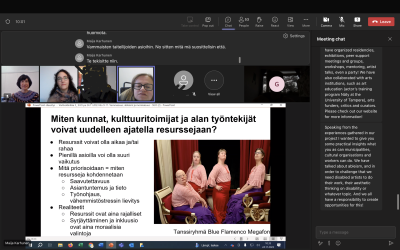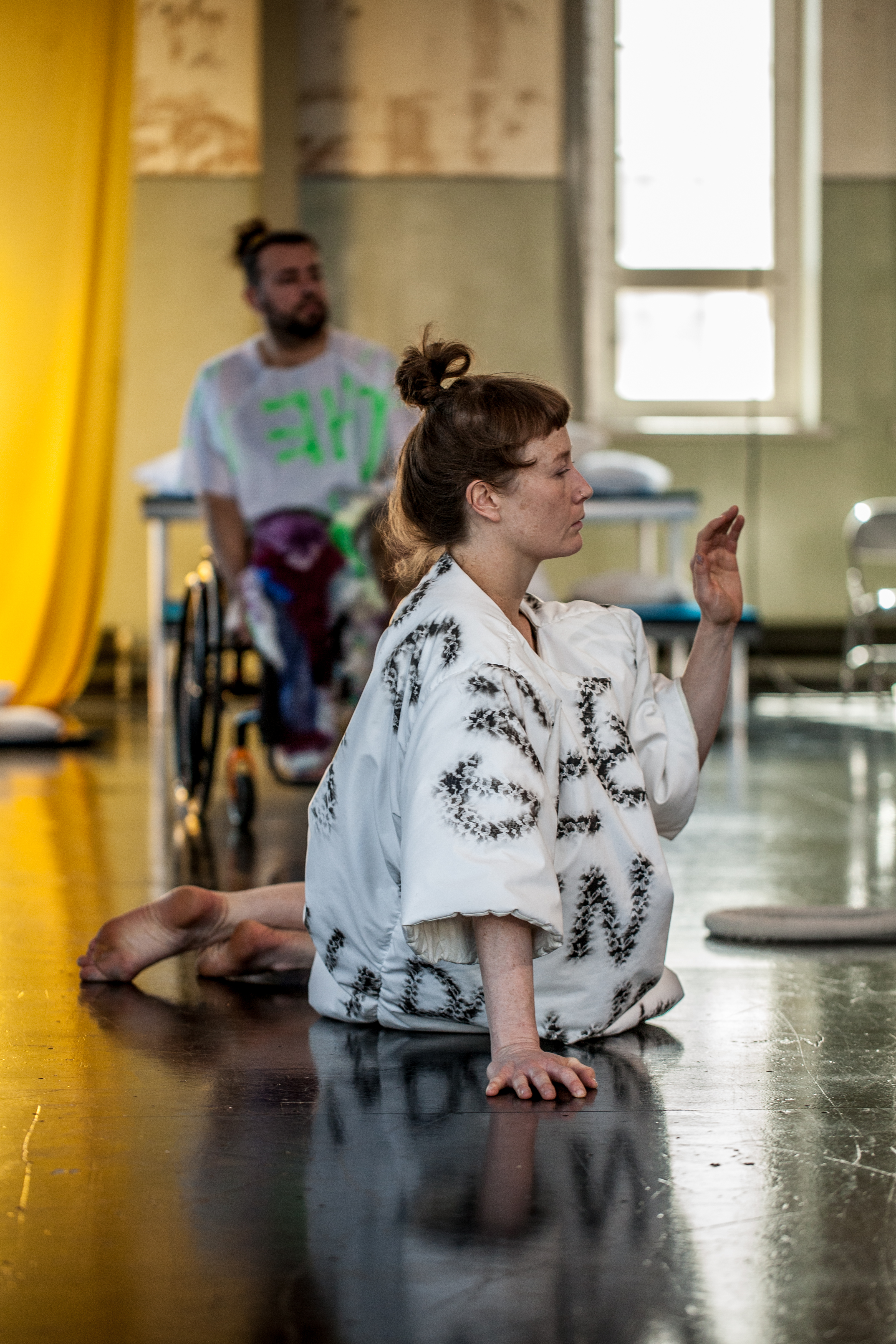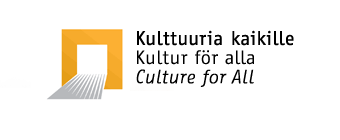Diversity online clinics: applying your knowledge and awareness towards actionable change in municipalities' art and culture activities

A review of the diversity clinics by Georgie Goater.
The Diversity Clinic Series
‘Diversity as a Starting Point for Municipalities’ Art and Cultural Activities in 2025’ is a two-year project organised and implemented by the Culture for All Service to bring diversity and cultural activities to municipalities on a national level. Directed by diversity expert, educator and artist Arlene Tucker, the project’s main task is to bring the knowledge and proficiency of inclusion, equity and accessibility, and thus the knowledge of diversity work to all cultural workers across Finland. In doing so, we can move towards building a more equitable society together.
The series of ten online diversity clinics scheduled between April 2023 and October 2024, was curated for all cultural and municipality workers in response to their needs to increase their diversity and equality expertise. The themes came about from the top ten responses collected from a questionnaire that was distributed through municipal organisations nationally in February 2023. In this sense, the series was a true co-creation with all municipalities and culture workers across Finland.
Registration to each clinic is free and open to anyone working in municipalities and the arts and cultural fields. The clinics are accessible, multilingual, and follow safer space guidelines outlined at the beginning of each session. For example, “Be present; respect others and you don’t have to agree but let's be constructive.” Furthermore, a 15-minute one-to-one online meeting is available for participants to schedule after a clinic, if there is anything more to debrief. Arlene articulates the intention: “It is important for us to build a community where we can truly support our growth and awareness of diversity” and she is wholeheartedly passionate and committed to this collective diversity work with persistence, warmth and urgency.
What is a Diversity Clinic?
A clinic is a two-hour intensive online session, where participants can gain a conceptual understanding and actionable tools to immediately put into practice towards various aspects of diversity. All diversity clinics are led by diversity agents. In some cases, the diversity agent will partner with Culture for All experts such as Aura Linnapuomi for the Accessibility clinic in May 2024 and Outi Salonlahti for the Diversity vs. Inclusion clinic facilitated by Daria Agapova, Sadjad Shokoohi and Olesia Kova. Past clinic themes have been Unconscious Bias facilitated by Martina Marti and Tal Riva Theodorou, Awareness of Power and Privilege by Anna Litewka-Anttolainen and Nuura Naboulsi and Cultural Diversity facilitated by Pablo Alvarez and Jaana Denisova-Laulajainen.
Themes for 2024 clinics range from Intercultural Dialogue to Audience Outreach and Engagement. The series is designed so that participants progress on their diversity, equity and accessibility (DEI) skills and awareness of their own relationship to racism and ableism. While joining the whole series is recommended, it is also possible to join intermittently, as each clinic stands independently from knowledge gained in previous clinics.
Diversity agents present research-based facts delivered orally in everyday simple language, with accompanying slides of graphics and text. Time is facilitated for participants to pause and self-reflect, with the opportunity to share their thoughts with the group. Self-reflection is a key and constant element of diversity work that is woven throughout the structured time of the clinic. Small group work with given prompts takes place in breakout rooms throughout the session so that participants can activate their self-awareness, response-ability and diversity work in action together.
A participant’s perspective on the ‘Disability, Ableism, and Diversity’ clinic
I had the insightful experience of my first Diversity Clinic by attending the fifth session, ‘Disability, Ableism, and Diversity’ on November 24, 2023, co-facilitated by diversity agent Paula Folqués Diago and Culture for All Service’s Maija Karhunen, who directs the project Making Space for Artistry – equity for disabled artists and artists who are Sign Language users includes artistic work in artist residencies and exhibitions. The content of the clinic tackled combating ableism and how to make working cultures more accessible and inclusive for persons with disabilities. As a freelance dance artist myself, working in the inclusive dance field where diverse embodiments of people who are disabled and nondisabled come together to dance in professional and community spaces, this clinic resonated strongly. Over 70 participants were present at this online clinic, where previous sessions have had over 100 participants out of over 250 registrations from all over Finland.
The clinic’s presentations were clearly articulated and delivered between Maija and Paula at an easy, engaging pace, with Arlene’s much-appreciated live translation from Finnish to English in the chat box. In the clinic, I learned that when it comes to addressing diversity, disability has unfortunately not always been included in our understanding and discourse about diversity.
The vast amount of diverse people who are disabled remain largely underrepresented in diversity, equity and inclusion conversations, Maija said in the introduction of the clinic, also referencing philosopher Nikolai Klix’s informative article "Disability is part of the diversity spectrum" published on the Making Space for Artistry Project’s website (the link takes you to external website, content in Finnish).
Being a nondisabled, cis-white person I am on the learning path of questioning my structural power and responsibility relationally, in how to work with awareness and equity without perpetuating unconstructive binaries, in work and beyond. The clinic offered many applicable tools. A practical guide to combating ableism in the cultural field was presented during the clinic, of which over half the points can be implemented instantly. Learn and speak about ableism; interact with people with disabilities; push for better accessibility and for the budget to cover needed items; engage with and promote art and culture made by disabled artists, and have a norm-critical approach to content, recruitment and programming. These are just a few of the listed actionable moves to combat ableism.
I can see that this takes conscious work and commitment, and yet with practice and collective accountability, it can become habitual, and embedded into common practice at all levels. Within the small group work in the breakout rooms, listening to the self-reflection of others on their recruitment practices and awareness around disability and ableism was positively impactful to my own self-reflection process. The honesty, solidarity and collective accountability with which we can approach the work together is supportive and meaningful.
About Diversity Agents
Diversity agents are art and culture professionals who have completed training from Culture for All Service. There are currently twenty-two diversity agents who have completed one of the two offered courses developed in collaboration with Cultural Policy Research Cupore in 2019 and Globe Art Point in 2019 and 2022. They are here to consult and give guidance on how to make your work environment or project more diverse and inclusive, and how to help your institution to be more diversity-minded.
To date, the diversity agents have worked with at least 27 different Finnish cultural organisations such as the Helsinki Art Museum, Finnish National Opera and Ballet, and Helmet libraries. They articulate that “diversity encompasses a radical way to rethink administration, management, curatorial process, content, language, workspace and public engagement” while recognizing the intersectionality and inherent value of diversity in our social fabric. “Plurality of ideas, cultural backgrounds, personal experiences and alternative narratives in various fields such as the arts and social sciences is highly celebrated within our community.” This knowledge is available to implement for all art and cultural organisations and projects by directly contacting diversity agents.
Diversity Clinic Participation and Feedback
A large part of diversity work is about self-reflection, and constant self-reflection which is why there is a feedback form sent out to all participants after each diversity clinic. A personal approach to anti-racist work, Arlene says, is by looking at it in a holistic way - “How can you separate it from your personal life?” she asks. Fundamentally it is about how you want to be treated, and how you want to attend to people in your own life.
Some participants’ reflections from the Disability, Ableism and Diversity clinic were “The form is good and the treatment of disability is very important, it seems that it often gets less attention in the discussion of diversity. I got a lot of tools from the clinic!” Another said, “The content was interesting, this clinic was perhaps the most rewarding because the topic was foreign to me.” And, “the information was clear and well-rounded. It was also good that there were translations in English'' which all reflect the relevance and importance of this accessible knowledge for arts and cultural workers to integrate and restructure within their work habits.
Participant feedback revealed how much people appreciated the small group work, where the heart of the diversity work could really come to light: that the content of the diversity clinics is not just theory offered to be applied later, but are already a space to practice in action, a place to practice self-awareness together in a safer space, inclusive of mistakes and failure.
In Conclusion
The Diversity Clinics are an accessible space to learn the “radical hospitality and care” in actionable diversity work within the arts and cultural field. The clinics present research-based facts true to the specific themes that are informative and easily comprehensible. They are supported with examples, problems and prompts through presentation and dialogue while bringing participants into their own accountability collectively.
In two hours, it is possible to get clear insights and a well-rounded view of the topic in the context of Finland and abroad, meet colleagues in the field, and practice diversity work in action during the sessions together. Furthermore, the series fosters a sense of community and solidarity around this collective work, making palpable the important role every one of us plays in moving systemic transformation forward.
It is inspiring and challenging because we need to be willing to get uncomfortable to come to awareness and make necessary changes towards more accessibility, inclusion, equity and diversity. There is also collective empowerment in shedding light on the tangible and actionable at the level of the individual, the collective and the institutional, to take action. As diversity itself is in its true nature, the clinics are vibrant toolkits and practical treasure troves to work with, to dismantle, rebuild, and make visible the diverse culture and artistry that enriches all lives.
+++
Register to the clinics
You can register to participate in the diversity clinics by emailing Arlene Tucker at arlene.tucker@cultureforall.fi. The next diversity clinic Intentional Inclusion is on January 26, 2024 and it is facilitated by diversity agent Kemê Pellicer and Culture for All’s communications and accessibility expert Salla Fagerstrom. For more information about the clinic, visit the webpage (the link takes you to Culture for All's website).
To read about the diversity agents, visit this page (the link take you to Culture for All's website).
About the author
Georgie Goater is a dance artist from Aotearoa, based in Helsinki. She was born and grew up bi-lingual in Nagoya (JP) and Ōtautahi (NZ). She performs, choreographs, facilitates workshops, writes, and collaborates as a freelancer, with Kaaos Company (FI) and with collectives Memory as Medium and Body Island (NZ/FI). Working with diverse embodied perceptions across disability and multi-cultural contexts has been a ground of constant learning. Georgie is a member of Globe Art Point’s (GAP) creatives database. For more information about Georgie, please visit her website (the link takes you to georgiegoater.com) or visit her profile on GAP’s information bank (the link takes you to Globe Art Point's website).

Photo: Georgie Goater
